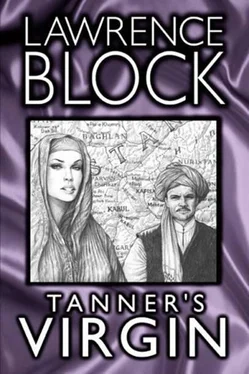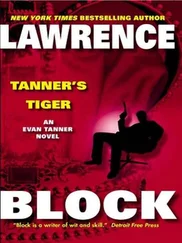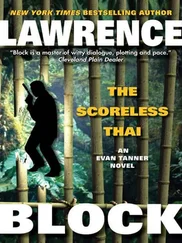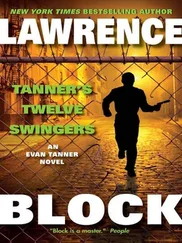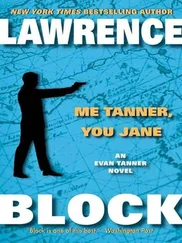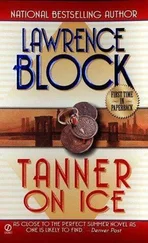There was not very much else I could do. Good passport artists, with proper tools and years of experience, can perform extraordinary tricks. I know two such men, one in Athens and one in Manhattan, but I didn’t know of anyone in Paris and had no time to find one. It would have been child’s play for such an artist to alter Mornay’s height and weight so that they corresponded to my own. As things stood, I had to rely on the fact that the average immigration officer is far too harried to spend too much time looking at a passport.
I left Paris late that afternoon. A different colon in the same Citroen drove me to the airport at Orly. I was wearing a medium-priced ready-made suit, and the cut of it showed me why Europeans have their clothes made to measure. Still, it fit my new role better than the applepicker’s work clothes. I had them with me in a small imitation-leather suitcase.
I flew to Geneva and Zurich. The following morning I went to the Bank Leu in Zurich, where I have a signature-and-number account for money that can’t conveniently accompany me into the States. I checked the balance and found that it stood at fifteen thousand Swiss francs, which is just under thirty-five hundred U.S. dollars.
I made them check it again, and they came up with the same figure. It was hard to believe that I had given so much money away in so short a time. There are a countless number of very good causes which I support, and it looked as though I had been supporting them even more munificently than I had realized.
“I thought there was more,” I said.
“If Monsieur desires an accounting-”
“Oh, not at all,” I said. “I trust you.” That didn’t sound right, and the manager looked very unhappy. “I mean I must have forgotten to carry,” I said. “When I was subtracting. Something like that.”
“But of course,” he said, doubtfully.
“I’ll have to get more to put in. As soon as I find Phaedra and get back from-” I realized suddenly that I was running off at the mouth. “-from wherever I’m going,” I finished.
I didn’t want to close the account. I withdrew three thousand dollars in American funds, leaving so little that the bank obviously was only continuing to serve me out of a sense of noblesse oblige. I changed some of the dollars into Swiss francs and some into British pounds, and on a hunch I bought a couple hundred dollars’ worth of gold from a wholesale jeweler on the Hirschengraben.
I killed time at a movie. I had already entered the theater before finding out that the film was one of those I had seen at Portsmouth, the Great Train Robbery thing, with all of the voices dubbed in German. The ending remained the same. Goddamned Scotland Yard caught the lot of them.
I took a taxi to the airport. I couldn’t go home and I couldn’t go back to England. I couldn’t go to Kabul because the spies would tear me apart. I couldn’t go to India or Pakistan because it would cost too much. I had only three thousand dollars and that would be barely enough to buy Phaedra’s freedom. I couldn’t go to Iran because the only direct flights went through either Athens or Istanbul, and I couldn’t go to Athens or Istanbul for political reasons. I probably could have gone to Baghdad, but I wasn’t sure how seriously the Iraqis took my involvement with the Kurdish rebels. I probably could have gone to Amman, unless the Jordanians knew me as a member of the Stern Gang.
I felt like Philip Nolan, the man without a country. I felt like a displaced person, a refugee, homeless, unwanted-
So where I went was Tel Aviv.
Tourists entering Israelhad their passports checked at length. Their luggage, too, received careful scrutiny. I had no way of knowing whether this was a matter of routine or if the inspectors had been tipped off to some special circumstances, but it was obvious in any event that M. Paul Mornay’s Belgian passport would not get me into the Promised Land.
So Paul Mornay left the tourist line and joined another line composed of those planning to immigrate permanently to Israel, and in this line his passport did not receive a second glance. In Hebrew I told the attendant I was fulfilling my lifelong dream of returning to the homeland of my people. In Hebrew he told me that I would indeed be welcome. “You already speak the language,” he said. “That will be of great value to you. And it encourages us to welcome newcomers from Europe. The country is drowning in a sea of Sephardim. And a sea of paper – consider the cursed forms we must fill out! But I shall gladly help you.”
He gladly helped me, and in short order M. Paul Mornay had filed his preliminary applications for Israeli citizenship, stating that he was a Jew and had a Jewish mother, this last being Israel’s sine qua non of Hebritude. “So you see that we are stricter than Hitler,” the immigration officer joked. “With just one Jewish grandparent one could be admitted to Auschwitz, but one must have a Jewish mother to enter Israel.”
I’ve no idea whether the real Paul Mornay, aliveh sholem, had a Jewish mother. Neither of my own parents were Jewish, although I do remember dimly that a sister of my father’s had married a man named Moritz Steinhardt, at which point the rest of the family ceased speaking with her. I have never been wholly certain whether she was ostracized because her husband was Jewish or German.
But as I filled out the immigration forms I felt a sudden bond of kinship with Minna’s little friend Miguel. He stayed home on Jewish holidays, and I was a member of the Stern Gang and a citizen-to-be of Eretz Yisroel. As the rye bread advertisements put it, you don’t have to be Jewish.
I stood at the window of Gershon’s apartment and looked out at downtown Tel Aviv. “Many Americans compare our city to San Francisco,” Gershon said, “but I have never been there. Do you notice the resemblance?”
I did now. In the taxi from the airport, I could think only that the driver punished his cab like a New Yorker.
“I have spoken to Zvi,” Gershon went on. “You recall that he was with us in Prague when we first met you, Evan. He must stop at synagogue for his father’s yahrzeit but will be over later. You remember also Ari and Haim?”
“Yes.”
“Haim is with the Army in Sinai. It is months since I have seen him. And Ari. When you saw him, he still had both his legs. He lost one in the June war. His jeep took a direct hit, he was lucky to live at all. So now he has an administrative job in Hebron. A desk job, preparing orders for the management of the new lands of Greater Israel. It is no fun for him, as you can imagine. But there is talk of his running for a seat in the Knesset in the next elections. A wooden leg will produce almost as many votes in Israeli politics as a wooden head.”
“In American politics, too.”
“I have heard this.” Gershon ran a hand through his thick black curls. “So much for old times. Zvi you will soon meet again, and the others must wait until your next visit. But you must be starving. I have an Arab girl who comes in twice a week to clean. She comes tomorrow, which accounts for the appearance of this apartment.” He shrugged. “But I must do my own cooking, and my skills in that area limit me to sandwiches. Are you a very close observer of the dietary laws, Evan?”
“Not really.”
“A bit of butter on a meat sandwich-”
“Would not bother me at all.”
“Thank God,” Gershon said. He returned from the kitchen with a plate of sandwiches on thinly sliced dark rye. I took a bite and looked at him.
“Zebra sandwiches, Evan. You have probably not had anything of the sort in America.”
“Never.”
“The flesh of the zebra is virtually unknown outside of Israel. It is said that zebra tastes remarkably like the flesh of the prohibited swine, yet the zebra parteth the hoof in obedience to the Mosaic injunction. These sandwiches, for example, may taste rather like ham sandwiches.”
Читать дальше
